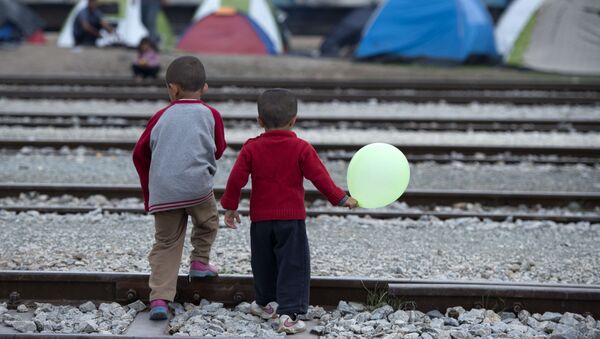According to Vincent Cochetel, Europe Director at the UN Refugee Agency (UNHCR), Sweden must invest more effort in finding the parents of refugee children and adolescents who arrive in the Nordic country, instead of routinely initiating admittance procedures.
Cochetel conceded that repatriation of children indeed sounded negative, yet ventured that it was well justified by family unification. According to Cochetel, Sweden violates the UN Convention on the Rights of the Child by providing asylum to unaccompanied minors, when it is still possible to trace their parents.
"Children should be seen as children, not as asylum seekers. Evaluating the possibility of a family reunion should be the first step," Vincent Cochetel told Swedish daily Dagens Nyheter.
"How can one determine what is best for the child without knowing where his or her family is and how they feel? You cannot skip this step," Cochetel argued. "Over 30 percent of all Afghan children are brought up with their families in Iran. Is it really best for them to go through the whole asylum process in Sweden or are they better off with their parents in Iran? Normally, we believe that parents stand for the basic protection of the child."
Last year, Sweden took in a record 163,000 asylum-seekers, of which over 35,000 were classed as "unaccompanied children." Over half of them came from Afghanistan, followed by Syria, Somalia and Eritrea. The vast majority of them were boys aged 13-17. A total of 88 percent of them were granted asylum. This year, Sweden accepted 1,704 refugee children, according to statistics from the Swedish Migration Board.
"A situation with a growing group of children and adolescents on the run may quickly become unsustainable. We may get a parallel society with young people in a very vulnerable situation," Amir Hashemi-Nik of the Stockholm County Administrative Board told Dagens Nyheter.
According to Vincent Cochetel, European nations must find a common and universally applicable method for age assessment, which would also ensure that children are properly registered and eliminate the risk of trafficking.





